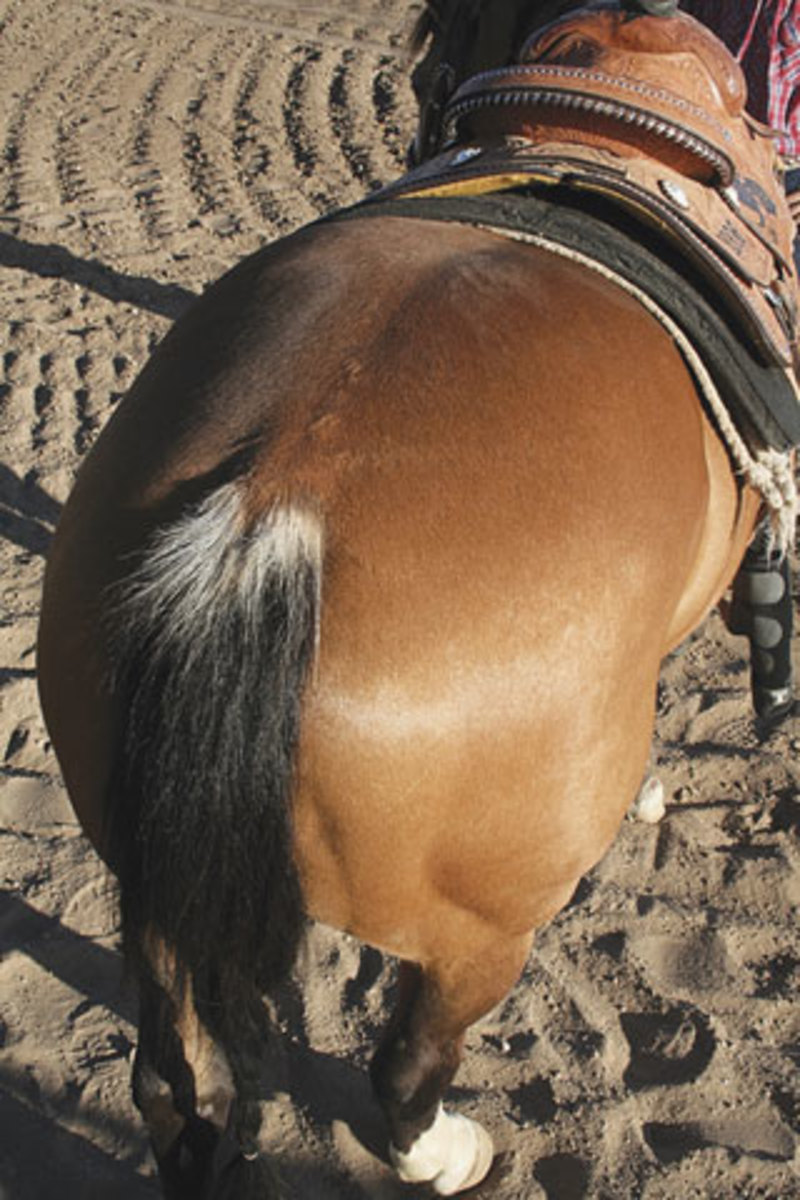
The horse, like all mammals, is subject to muscle problems due to abnormal metabolism of energy. The byproducts of abnormal metabolism cause inflammation of muscle cells, which leads to painful spasms of the large muscles of the back and hindquarters. The clinical result is a horse that can’t move due to these painful muscle spasms.
Historically, this syndrome in horses was referred to as “Monday morning sickness,” Azoturia or “tying up.” It was called “Monday morning sickness” in the days workhorses were used in farming. These horses would be grained heavily to provide energy for hours of pulling a plow or disk. With a day off on Sunday, it was common to have the problem arise in these horses when they went back to work on Monday morning.
That history still applies today. The most common scenario for a horse to have an episode is when that horse is being fed a high-concentrate diet and has time off, especially if left in a stall, and then asked to perform physically.
Research has shown that this clinical problem may have more causes than just simple management errors. There are some genetic factors that make some horses prone to recurring problems. In horses with recurring episodes of tying up, there are diagnostic tests to help identify the specific cause. The tests range from blood analysis for muscle enzymes and electrolytes to muscle biopsy.
The most common approach to preventing this problem lies in controlling the diet and regular exercise, even if that’s just having a turn-out area for the horse. Horses evolved as grazers of high fiber diets where they got regular exercise going to feed and water. Keeping a horse confined in a stall and feeding him grain are not natural things for his metabolism. Of course, that lifestyle isn’t healthy for any animal, including us humans.
An important point I would like to make regards when your horse experiences one of these episodes. Do not try to “walk” your horse out of it. You may make the problem more severe by forcing the horse to continue to move. Call your veterinarian for help. Commonly, analgesics and sedatives are given to relax the spasms. In severe cases, I.V. fluids are given to correct electrolyte imbalances and improve tissue perfusion to carry away the toxic byproducts causing the problem.
Keeping the horse well hydrated can also prevent potential damage to the kidneys from products that leak out of ruptured muscle cells into the circulation and get filtered by the kidneys. One of the old terms for this condition was Azoturia, which literally means abnormal nitrogen products in the urine.










